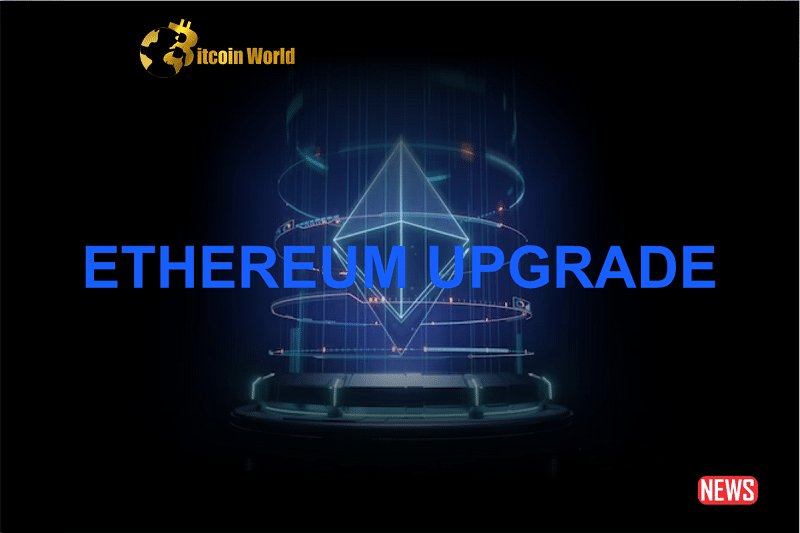Imagine a world where building the next killer decentralized application (dApp) not only earns you users but also a share of the network’s success. For Ethereum Layer 2 developers, this vision might just become a reality thanks to a promising proposal: EIP-6968. This upgrade introduces an innovative concept called “contract secured revenue” (CSR), designed to directly incentivize and reward the creators behind the dApps we love and use.
What is EIP-6968 and Contract Secured Revenue (CSR)?
At its core, EIP-6968 proposes a mechanism where developers of popular dApps on Layer 2 can earn a portion of the transaction fees generated by users interacting with their smart contracts. Think of it as a direct reward for building valuable and widely adopted applications within the Ethereum ecosystem.
Here’s a breakdown of how CSR works:
- Rewarding Popularity: The more users interact with a dApp’s smart contracts, the larger the share of transaction fees the developers can potentially earn.
- Layer 2 Focus: This proposal specifically targets Layer 2 networks, which are crucial for scaling Ethereum and making it more accessible.
- Shared Success: It fosters a collaborative environment where the success of the network and the success of individual dApps are intertwined.
- Financial Incentive: CSR provides a tangible financial incentive for developers to build and maintain high-quality dApps on Layer 2.
Why is EIP-6968 a Potential Game Changer?
The introduction of CSR has the potential to significantly impact the Ethereum landscape, particularly the burgeoning Layer 2 ecosystem. Let’s delve into why this proposal is generating so much excitement:
- Fueling Innovation: By providing a sustainable revenue stream, CSR can encourage more developers to build innovative and user-friendly dApps on Layer 2.
- Strengthening Layer 2 Networks: As developers are incentivized to deploy on Layer 2, it can lead to increased activity and adoption of these scaling solutions.
- Creating Ecosystem Chains: EIP-6968 can facilitate the development of “ecosystem-chains,” where projects with shared values and themes can collaborate and thrive. This goes beyond the concept of individual “app-chains.”
- Funding Public Goods: As highlighted by Kevin Owocki, a co-author of the proposal, CSR could be a mechanism to fund public goods within the Ethereum ecosystem, ensuring the sustainability of essential infrastructure.
- Attracting Talent: The prospect of earning directly from the usage of their contracts can attract more talented developers to the Ethereum ecosystem.
The Inspiration Behind EIP-6968: A Nod to EIP-1559
Interestingly, EIP-6968 draws inspiration from a previous successful Ethereum upgrade: EIP-1559. Implemented in August 2021, EIP-1559 introduced a mechanism for burning a portion of the transaction fees. EIP-6968 is essentially a modification of this mechanism, redirecting a portion of those fees to reward dApp developers. This clever reuse of existing infrastructure makes it potentially easier to implement across various networks already utilizing EIP-1559.
What Does This Mean for the Future of Ethereum?
The potential implications of EIP-6968 are far-reaching. Imagine a future where:
- Developers are directly rewarded for creating valuable applications.
- Layer 2 networks become even more vibrant and active.
- Collaboration and shared success are at the heart of the Ethereum ecosystem.
- Funding for essential public goods becomes more sustainable.
This proposal could usher in a virtuous cycle where talented developers are incentivized to build high-quality dApps, leading to increased user adoption and further strengthening the Ethereum network.
Are There Any Challenges?
While the potential benefits of EIP-6968 are significant, it’s important to acknowledge that implementation and governance will be key. Questions surrounding the distribution mechanism, the criteria for determining which contracts qualify for CSR, and potential gaming of the system will need careful consideration and community discussion.
Getting Involved and Staying Informed
EIP-6968 is still a proposal, and its journey towards implementation will involve discussions, feedback, and potential revisions within the Ethereum community. If you’re a developer, a dApp user, or simply interested in the future of Ethereum, here are some ways to stay informed and potentially contribute:
- Follow the Discussions: Keep an eye on Ethereum Improvement Proposals repositories and community forums for updates and discussions related to EIP-6968.
- Engage with Developers: Share your thoughts and feedback with developers working on Layer 2 solutions and the EIP-6968 proposal.
- Attend Community Events: Participate in online and offline Ethereum community events like hackathons and conferences to learn more and connect with others.
In Conclusion: A New Era for Ethereum DApp Development?
EIP-6968 represents an exciting step towards a more sustainable and rewarding future for Ethereum dApp development on Layer 2. The concept of contract secured revenue has the potential to reshape the incentive structures within the ecosystem, fostering innovation, collaboration, and growth. As the proposal gains traction and undergoes further scrutiny, it will be fascinating to observe how this innovative approach could unlock new possibilities and solidify Ethereum’s position as the leading platform for decentralized applications. The future of building on Ethereum might just be getting a whole lot more rewarding.
Disclaimer: The information provided is not trading advice, Bitcoinworld.co.in holds no liability for any investments made based on the information provided on this page. We strongly recommend independent research and/or consultation with a qualified professional before making any investment decisions.




